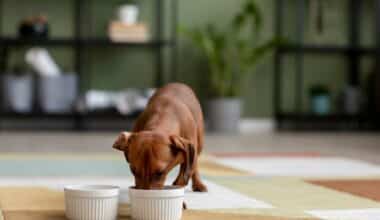Cabbage is one of the healthiest vegetables available, so it stands to reason that it must be beneficial to our pets as well. You may be wondering if dogs can eat cabbage if you want to include healthy vegetables in their diet to give them more nutrition and substance without increasing their carbohydrate intake. So, can dogs eat cabbage, raw or cooked?
Can Dogs Eat Cabbage?
Yes, dogs can eat cabbage. Not only is cabbage safe for dogs to eat, but it also contains many nutrients that they will benefit from. Dogs can eat cabbage raw, cooked, or air-dried. Dogs can eat any type of cabbage that humans can, so your pup can eat green, red, and white cabbage.
Cooked Cabbage is Better Than Raw Cabbage
Raw and cooked cabbage is both safe for dogs to eat and full of health benefits. Most dog owners prefer cooked cabbage for their pets because it appears to provide the most health benefits.
Related Article: Ant Bites On Dogs
Boil or steam your cabbage in a pot of hot water to successfully prepare cooked cabbage for your dog. When it has reached the proper temperature, give it to your dog. While raw cabbage is still beneficial to your pet, feeding it too frequently can be harmful.
Will Raw Cabbage Hurt my Dog?
Raw cabbage contains thiocyanate, a natural compound that can attach to your dog’s thyroid gland and cause hypothyroidism. While feeding your dog a reasonable amount of raw cabbage is not harmful, it is important to note that too much can cause health issues such as hypothyroidism.
How Much Cabbage Can Dogs Eat?
So, how much cabbage should dogs eat? A vet might tell you that a dog can eat an eighth of a cup for every 20 pounds they weigh, as a general rule.
If you have a smaller dog, about an eighth of a cup of shredded cabbage leaves added to their diet will suffice. If you have a large dog, you may want to increase the amount of cabbage in their diet.
Related Article: Can Dogs Eat Pickles
As previously stated, it is critical to gradually introduce new foods to your pet to avoid shocking their system. Following the recommended feeding amount will yield the best results and will keep your pet happy and healthy in the long run.
Cooked vs. Raw Cabbage
While you can feed your pet either raw or cooked cabbage, raw cabbage contains a compound called thiocyanate, which is harmful to your dog’s thyroid gland. Raw cabbage may cause hyperthyroidism if consumed on a regular and large scale. Raw foods are generally not the best option for your dog. Cooking the food allows the vegetables to be easily chewed, swallowed, and digested. Cooking also releases any potential toxins or chemicals left over from the farm where the cabbage was grown.
If you cook the cabbage and feed it in moderation as a behavioral treat, the harmful effects on the dog’s thyroid gland should be avoided. The harmful effect of this compound is rendered inactive during the cooking process. However, do not season the cabbage leaves with salt or pepper. Dogs prefer plain, slightly cooked cabbage. While adding salt may enhance the flavor for you, never add salt to your dog’s diet as this can increase the risk of poisoning due to overconsumption.
Health Benefits of Cabbage for Dogs
Leafy greens are a good place to start if you want to start adding more veggies to your dog’s diet. Not only is cabbage safe for dogs to eat, but it can also be prepared in a variety of ways. Dogs can enjoy cabbage alongside their pet parents, whether it’s offered as a green treat on its own, chopped up and served with their kibble, or baked and stuffed with other pet-friendly ingredients (or even their food).
Even better, cabbage has a variety of health benefits for your dog. Cabbage contains a high concentration of vitamins K, C, B6, and B1. It’s also high in fiber and essential minerals like manganese, copper, and potassium. Red cabbage, in particular, is thought to have powerful anti-cancer properties. Although dogs get the majority of their nutrition from their regular food, it never hurts to supplement with healthy human foods like cabbage now and then (unless your veterinarian advises against it).
Related Article: How Far Can Dogs Hear: All You Need To Know
Furthermore, cabbage contains high levels of phytonutrients, which are powerful antioxidant compounds. Cabbage’s polyphenols make it the cruciferous veggie with the most antioxidants, which can benefit both human and canine health. Antioxidants help to reduce free radicals in the blood, which helps to prevent diseases like cancer. They can also help your four-legged friend’s immune system naturally and can even lower your dog’s risk of developing certain diseases or health conditions, such as heart disease.
Another advantage of cabbage is that its high fiber content has been shown to promote a healthy gastrointestinal system in dogs and aid in proper digestion. It can even benefit their skin by keeping it free of irritation; eating cabbage promotes healthier skin from the inside out for both humans and dogs, making it an excellent snack for pets with dry or rough skin.
Of course, dogs are carnivores by nature, so while veggies can be healthy for them to snack on occasionally, meat should still make up the majority of their diet.
Dangers of Cabbage for Dogs
One of the most serious risks of cabbage for dogs is the same as it is for humans: eating too much of this leafy green vegetable can cause stomach upset and symptoms such as excessive gas and flatulence.
That is why, just because something is good for dogs, it does not mean they should be allowed to eat as much as they want. Always consult your veterinarian before giving your dog cabbage or any other “people food,” as he or she can provide advice based on your dog’s health status. As a general rule, introduce a small amount of new food, such as cabbage, and monitor your dog for about 24 hours for symptoms that may indicate an issue, such as watery stool.
Related Article: Can Dogs Get Poison Ivy?
Allowing your dogs to eat too much cabbage can cause hypothyroidism—though your dogs would have to eat a lot of raw cabbage over multiple days for this to happen. Cabbage contains thiocyanate, a natural compound that affects the thyroid gland. However, thoroughly cooking the cabbage before serving it to your four-legged friend is one effective way to remove this compound from the cabbage.
Although dogs can eat any color or form of cabbage in moderation; it is always best to cook the cabbage because it is easier for your pooch to chew and digest; it protects against the slight risk of causing hypothyroidism. And, of course, whether you’re cooking purple, Napa, Savoy, red, or any other type of cabbage, avoid any spices, seasonings, or other additives that may not be dog-friendly—trust us, your dog won’t mind the natural “bland” taste of cabbage or any other vegetable.
How to Feed Cabbage to Your Dog Safely
“It’s best to introduce this wonderful vegetable to a dog when they’re an adult,” Ahn says. Because puppies have different feeding and dietary needs as they grow; they usually don’t progress to adult food—dog or human—until they reach their breed’s full height and weight requirements. If you have any questions about this, your veterinarian can help you create an eating plan that includes the appropriate amount of fruit and vegetables.
Can dogs eat raw cabbage? While small amounts are unlikely to harm your dog, cooked cabbage—typically boiled or roasted without any seasoning—is easier for them to digest. Avoid combining onions and garlic, which are toxic to dogs. Cooking the cabbage, according to Ahn, also helps deactivate the effects of thiocyanate.
Related Article: Can Dogs Eat Steak? Health Benefits
“It’s also a good idea to check with your veterinarian first to make sure they’re both aware of and comfortable with you introducing cooked, diced cabbage into your dog’s dietary regimen,” he adds.
According to Ahn, because cabbage leaves are dense and leathery even after cooking; they pose a choking hazard and may make digestion more difficult. So, once this vegetable has been cooked, dice it up. Once you’ve cut it into 1-inch squares; simply run your knife through it again to make pieces half that size or smaller.
Conclusion
In this article, I discussed whether it is safe for your dog to eat cabbage raw or cooked; as well as a variety of other factors that influence your dog’s consumption of cabbage. It is perfectly safe for your dogs to eat cabbage because it has numerous health benefits.
I also discussed factors to consider before feeding cabbage to your pet, such as serving size, why cooked cabbage is preferable to raw cabbage, and the effect cabbage can have on your animal.
Frequently Asked Questions
Will cabbage upset a dog's stomach?
One of the most serious risks of cabbage for dogs is the same as it is for humans: eating too much of this leafy green vegetable can cause stomach upset and symptoms such as excessive gas and flatulence. That is why, just because something is good for dogs, it does not mean they should be allowed to eat as much as they want.
Is cabbage good for a dog?
Cabbage, a leafy green or red vegetable, is a good low-calorie snack for dogs because it contains essential nutrients and vitamins that dogs require for optimal gut health and a strong immune system.
Does cabbage make dogs fart?
Foods like broccoli, cauliflower, spices, onions (toxic to dogs), and cabbage add to the production of foul-smelling gas.
What vegetables are easy on dogs stomach?
Both pumpkin and sweet potatoes have digestive health benefits. Pumpkin, like sweet potatoes, is high in fiber, which aids in the regulation of canine digestive systems.






